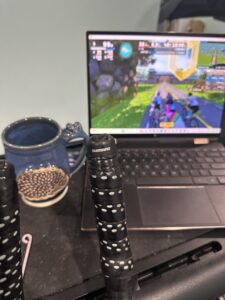As we head into racing season, many of us are looking at ramping up training toward goal races. As coaches and athletes, we love to see perfect adherence to a training plan and a sea of green boxes in Training Peaks. While being able to fully and completely execute a training plan before race day is awesome, it also doesn’t happen for most people (life is not as simple as writing down a plan — no matter how detailed — and following it).
Here are a few things to think about when planning your season (or working with your coach to craft a training plan) to make it as successful as possible.
Give Yourself Grace. This is the hardest part. Most of us are good at giving others grace, but when it comes to ourselves, we’re likely to rip ourselves to pieces rather than show a little self forgiveness. Giving yourself grace is HARD. It’s also necessary. Sometimes you’re not going to be able to execute. Sometimes the best laid plans fail. Sometimes doing X doesn’t get you Y (even if it worked for a bunch of other people). While it feels terrible to not succeed, it’s also ok. We all fail. Let me repeat that WE ALL FAIL. What matters is whether you get back up, dust yourself off, assess where you are and where you want to be, and keep working at it. And remember be kind to yourself. In trying to reach a goal, especially a big scary goal, there’s a lot of falling down and getting back up. Its a lot easier to get back up if you remember to show yourself some grace.
Be Honest About Your Life. We all do more than train – eat – sleep. We have families and partners and friends and jobs and responsibilities that take up varying amounts of time. We commit time and mental and physical bandwidth to activities other than swimming, biking, and running. That’s ok, but we need to be honest with ourselves about what our lives look like right now — this should include the not really glamorous stuff like things that need to be done to keep a household running or time getting to or from work or shuttling kids around or running errands. I’ve had times in my life when I had 18-20 hours per week to train. Right now I’m working 12-14 hours a day and have maybe an hour to commit to training (4 plus months of 80-90 hour work weeks is brutal and exhausting). It’s ok to have really limited time, but it’s also necessary to be realistic with yourself and your coach about how much time you have. Right now I’m traveling about 50% of the time. That impacts the how and when I can train.
Right now I’m traveling about 50% of the time. That impacts the how and when I can train.
Prioritize. Once you’ve assessed what’s going in your life, the next step is to prioritize. Maybe you have very little free time, but maybe you’re doing a lot of things you actually don’t want to do and you’re willing to let those things go. Maybe training is your number 1 priority. Maybe it isn’t. I was recently questioning myself about why I was always able to get a daily run in when I’m traveling but how I never seem to have the time to do so when I’m home. I came to the realization that I have about 60 minutes of “free” time each day. When I’m home I make my daughter my priority and use that 60 minutes to bring her to school. When I’m traveling, I can prioritize myself in that moment and get the run in. Your priorities are unique to you and there is no right or wrong way to prioritize.
Set Realistic Goals. Based on your life and your priorities, set goals that are within the realm of possible. This doesn’t mean you shouldn’t have a stretch goal, it means that your goal should not be unattainable out of the box given your current life situation. If you only have 6 hours a week max to train and limited current fitness, for most people its probably not realistic to try to train for your very first IRONMAN race. On the flip side if you have a fair amount of time and flexibility, GO FOR IT. Using me as an example, my original goal for this year was IRONMAN Mont Tremblant. Given my current work hours and travel schedule (and the fact that I don’t see it getting better until at least June), that’s not a realistic goal. I don’t have the time or the ability to prioritize training to be prepared on race day. Doing an Olympic distance triathlon or training for a later season half, is a lot more realistic (but still a challenge) for me. Realistic Goal for 2023 – Summer / Fall Olympic Distance Races.
Realistic Goal for 2023 – Summer / Fall Olympic Distance Races.
Build in Flexibility. Even if you have lots of time and training is your priority, life happens. You get sick, the kids get sick, the boiler blows, the basement floods, there’s a fire drill at work, and then another fire drill at work, you have to handle a family emergency, your plane gets delayed, or even worse cancelled, it snows 2 feet. You get the picture. Everyone needs flexibility at some point. Training plans need room for flexibility (this is also an awesome reason to have a coach because a coach can help build in flexibility and then can adapt the workouts and training flow if and when something happens). A rigid plan has far less chance of success than a flexible one.  Nothing like a a trip to the ER to remind you that life happens.
Nothing like a a trip to the ER to remind you that life happens.




